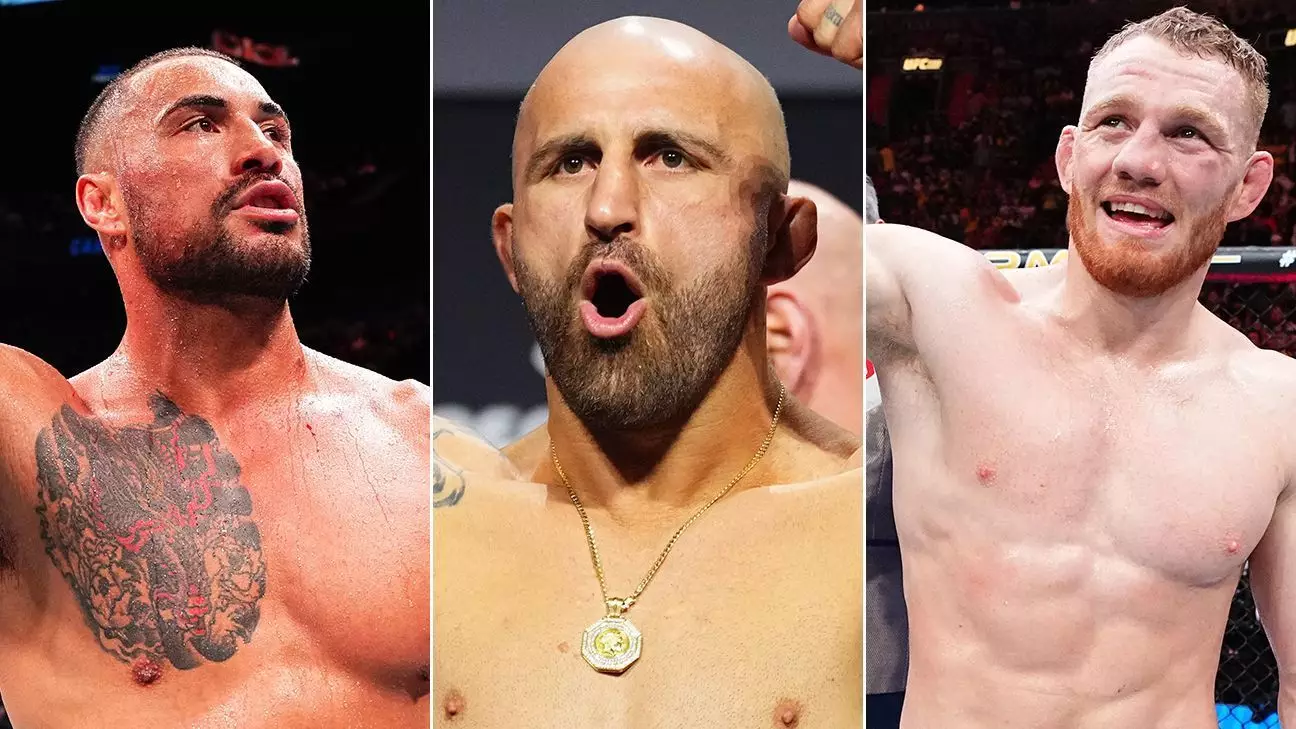In a rollercoaster ride for the Ultimate Fighting Championship (UFC), the events of the next 49 days promise to leave an indelible mark on the landscape of mixed martial arts in Australia and New Zealand. With three standout athletes—Carlos Ulberg, Alexander Volkanovski, and Jack Della Maddalena—poised for pivotal bouts, the stakes are sky-high. Rather than showcasing the talent at UFC 312 in Sydney, which sometimes felt lackluster, the focus now shifts to a thrilling chapter of Oceania’s combat sports evolution. These fighters are not only battling for personal glory; they are aiming to underscore the region’s burgeoning status as a powerhouse of elite MMA talent.
Ulberg’s encounter with Jan Blachowicz this Saturday at the O2 Arena in London carries the weight of potential title implications. A victory could catapult the Kiwi fighter into the title contention spotlight, demonstrating that he’s ready to ascend the ranks among the elite. With seven consecutive wins, four of which ended via knockout, Ulberg has established himself as a formidable contender—momentum that few in his division can match. It’s an exciting prospect but also holds the pressure of expectation. Ulberg’s own words reveal a fighter who has dreamed of this moment and is unwaveringly prepared. “I’m ready for everything,” he told ESPN, radiating confidence.
The Challenge of Legacy for Volkanovski
Contrast this eagerness with Volkanovski’s recent challenges. Once an indomitable featherweight champion, his last performances have raised eyebrows. With a waning record of one victory in four bouts, and the looming shadow of age and hiatus from the Octagon, doubts about his fighting spirit and ability to reclaim his title are disturbingly common. His resilience shines through, however, as he prepares to face Diego Lopes. “I’m going to work around them anyway, capitalize on it,” he insists, embodying the very spirit that raised him to the top in the first place.
Volkanovski’s legacy breeds responsibility too. While he acknowledges the mounting questions about his place in the sport, he is also determined to seize the opportunity for a comeback, insisting he still has plenty to offer. He remains committed to not only restoring his status but also uplifting his teammates, further solidifying their impact on the global MMA stage. Speaking of his compatriot Ulberg, he declares, “Carlos is going to get the ball rolling.” The impending matches present not just opportunities for personal victories but foster the rich tradition of fighting excellence that has been cultivated in this part of the world.
The New Wave of Aspirants: Della Maddalena’s Challenge
For Jack Della Maddalena, UFC 315 presents a timely opportunity that arrived sooner than anticipated. Originally slated to fight another competitor, an injury to Shavkat Rakhmonov has shifted the spotlight onto him, now stepping in to face the reigning welterweight champion, Belal Muhammad. The unexpected nature of this title shot would daunt many, but Della Maddalena’s approach is different. He expresses excitement to potentially join the ranks of Australian and New Zealand champions, stating, “My plan is to fight consistently, get the belt, defend the belt.”
Having emerged from relative obscurity to face elite competition, Della Maddalena embodies the aspirations of many fighters from the region. His ambitions extend beyond personal achievement; he aims to bring more UFC events to Australia, thus stimulating the local sports culture and providing visibility for upcoming fighters. His vision imbues a sense of urgency that promises to uplift an entire generation of combatants eager to expand their opportunities within the sport.
Building an Infrastructure for Future Champions
Regardless of the outcome of these high-stakes fights, all three athletes recognize a crucial reality: the UFC’s success in the region hinges on fostering local talent. Ulberg emphasizes the need for dedicated support infrastructures such as Performance Institutes in Australia or New Zealand. He envisions a future where aspiring fighters have access to state-of-the-art facilities akin to those enjoyed by rugby or football stars in their homeland. “There’s a lot of talent in Australia and New Zealand,” he notes, hinting at both a challenge and an opportunity. The demand for proper resources is pressing and highlights a pivotal moment for the UFC, one that could signify a brighter future.
As this trio of fighters embarks on their defining moments, the attention is squarely upon them. Their fights may reshape not only their careers but also the broader narrative of mixed martial arts in Oceania. The sense is palpable: Australia and New Zealand are not just contributors to the sport—they are about to redefine it. The forthcoming battles may serve as a tipping point, influencing the trajectory of the UFC while igniting an unyielding passion for the sport in their home countries. The UFC will undoubtedly feel the dispirited spirit and creative force emanating from this dynamic region—it’s a narrative poised to unfold in stunning fashion.


Leave a Reply